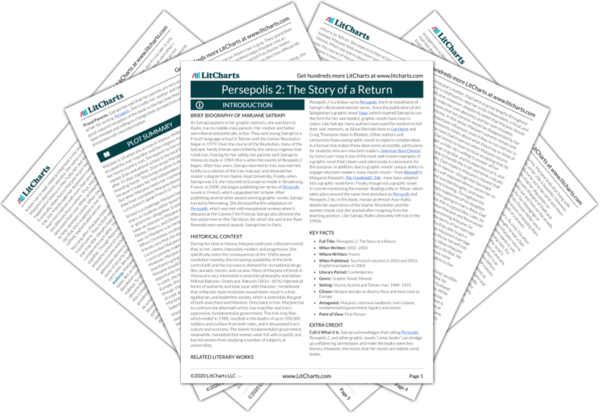Previous
The Veil
|
Previous
The Veil
|
Persepolis 2: The Story of a Return: The Return Summary & Analysis |
Next
The Joke
|


Upgrade to unlock the analysis and theme tracking for all of Persepolis 2: The Story of a ReturnPersepolis 2: The Story of a Return!
Get LitCharts A+